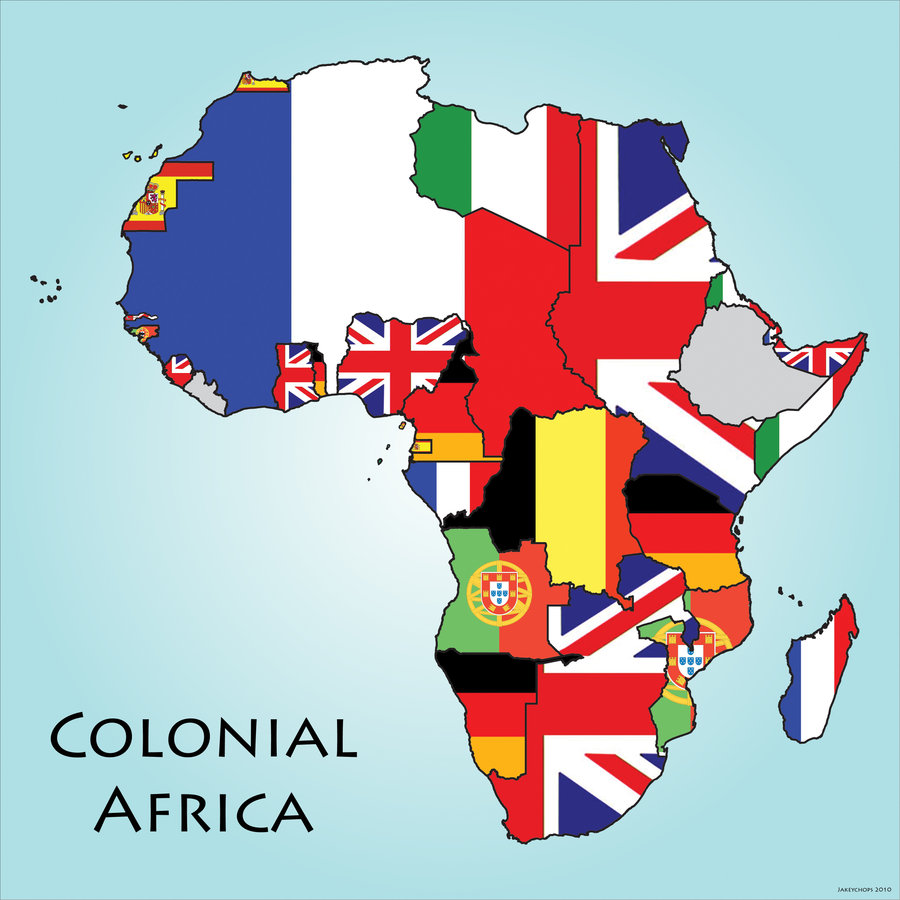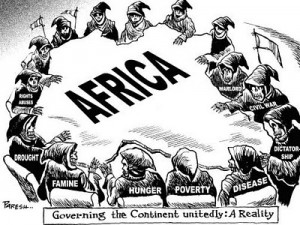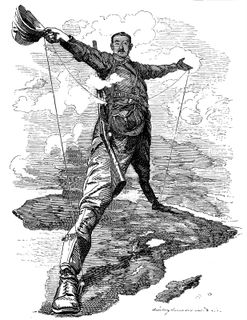Take two countries like Africa and the United States and most people would use the word similar to compare the two, but you can’t judge a book by its cover. As different as these countries are now, they were both colonized very similarly by the Europeans. This is just another example of how where nature and nurture both play a factor, nurture takes over as the dominant factor.

The European Colonies of Africa
The Europeans have a tendency to think they can intrude on other people’s land and take over. The African’s and European’s had quite a confusing time with each other. Through treaties and other agreements, the African’s thought they were making allies, but the Europeans thought that the African’s were signing their life over to them. The African’s soon realized this and did what anybody would do, they resisted. African leaders tried to order military rebellions but they were no match for Europe’s well-developed military. The African military was not the biggest or most professional army out there, so they relied mostly on Guerrilla Warfare. The African countries fought hard but could not hold on to their precious land. The technology of the African weapons was very basic, they used things such as bows, arrows, spears, and swords. While the technology of the European weapons was very up to date, they had the latest rifles, machine guns, artillery, and pretty much any of the newest technology at the time. There was just not much chance for the Africans. By the 1900’s most of Africa lost the battle to the Europeans and was colonized by the powers of Europe. Every European power wanted a piece of this new African territory and this created what is known as “The Scramble for Africa”. These countries were so serious about getting as much of Africa as possible that the word “Imperialism” started getting tossed around a lot. This colonization should sound familiar to you if you know anything about the colonization of the United States.
The United States colonization is so similar to this that it is scary. There are some differences like the fact that the British actually used force to move the Indians first and then also tried to use force to control the American colonies after. The British used force just like the other European powers did in Africa. There was also war between world powers because everyone wanted a piece of America just like “The Scramble for Africa”. The colonies of America had a small army so they too had to use Guerilla warfare. The technology difference in weapons between Britain and the colonies was not quite as big of a difference as the one between Europe and Africa, but it was still enough to give the Americans a disadvantage. The colonization of Africa and America are so similar and not many people even think to look that far into it because they see how different these countries are today.

Slavery in America
Imperialism and slavery are to me very similar terms. Imperialism is virtually the act of making a group of people into slaves. No imperialism is not as severe as slavery but it has the same basic principles. The definition of imperialism is “a policy of extending a country’s power and influence through diplomacy or military force” according to dictionary.com, and the definition of enslave is “cause (someone) to lose their freedom of choice or action, usually by force”. These two definitions are very similar. If you look at the first part of the definitions, a country extending its power is like exerting its dominance, usually a loss of someone else’s freedom also comes with a country extending its power. The second part of each definition refers to the act of force being used to obtain what someone wants. I think that slavery and imperialism are both horrible things. Slavery often comes with more severe treatment of the victim but not in all cases and sometimes the victims of imperialism are often treated very poorly. I think that slavery and imperialism go hand in hand and are both awful things, but unfortunately they are both a part of our history.
– Austin Groff









.png)
